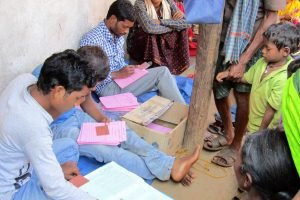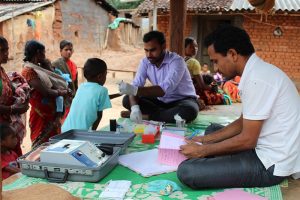TULSI is a programme conceived by Swasthya Swaraj after seeing the plight of tribal adolescent girls in Thuamul Rampur Block of Kalahandi district, Odisha. 90% of them living in remote villages and hamlets are illiterate and invisible. This is an attempt towards comprehensive community health in order to reduce maternal and child mortality and morbidity.
Tulsi programme targets 500 tribal adolescent girls in remote villages and envisages the following:
- Improving their health and nutrition status through healthcare services and training programmes specific to their needs.
- Empowerment through adolescent girls-friendly, skills-based informal education programme.
- Education and training to improve their reproductive health knowledge, change of attitudes and practices.
- This programme is born out of our quest for improving the deplorable Health, education and nutrition status of the poorest of the poor school-going children in tribal villages. HPS is an ambitious programme envisaged to transform the 15 non-functioning government primary schools into nodal points of health and nutrition promotion in the villages and centres of academic excellence. 15 government primary schools in Kerpai & Silet gram panchayats are selected for this innovative programme.
Activities done so far are:
- Village meetings in each village to introduce the idea to the community.
- Constitution of School Health Committees in each school (one teacher, SS field animator i/c school, Swasthya sathi of the village, 2 representative parents, 2 students of the school).
- Orientation workshop to all the teachers and SS staff involved in the programme bringing together District education department and District Health Department.
- Periodic meetings of all the teachers with Block Education officer and Swasthya Swaraj staff involved in HPS.
- School Health check-up, Student health record for each individual student, analysis of the data – presented at the meeting of Education department and teachers.
- School kitchen gardens- being initiated
- Malaria education done in the schools through creative, activity-based programmes.
- Training module for malaria education to residential tribal schools.
- Training module on malaria for teachers.
- Vision checking of all children.
The larger vision is to come up with innovative ways to transform the government primary schools into centres of learning and making them the nodal points of Health & Nutrition promotion in villages


